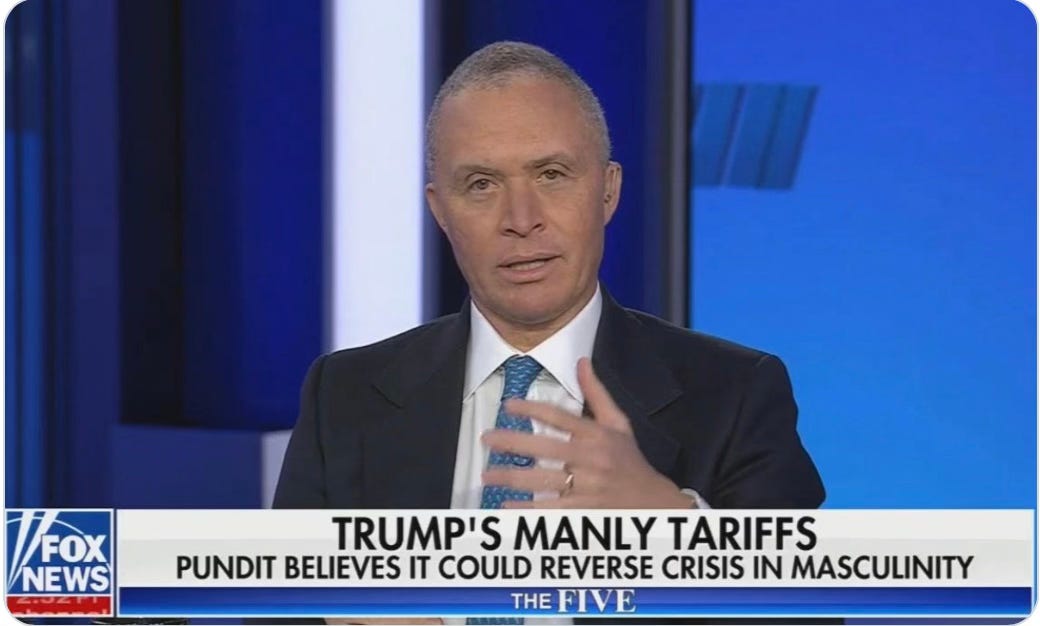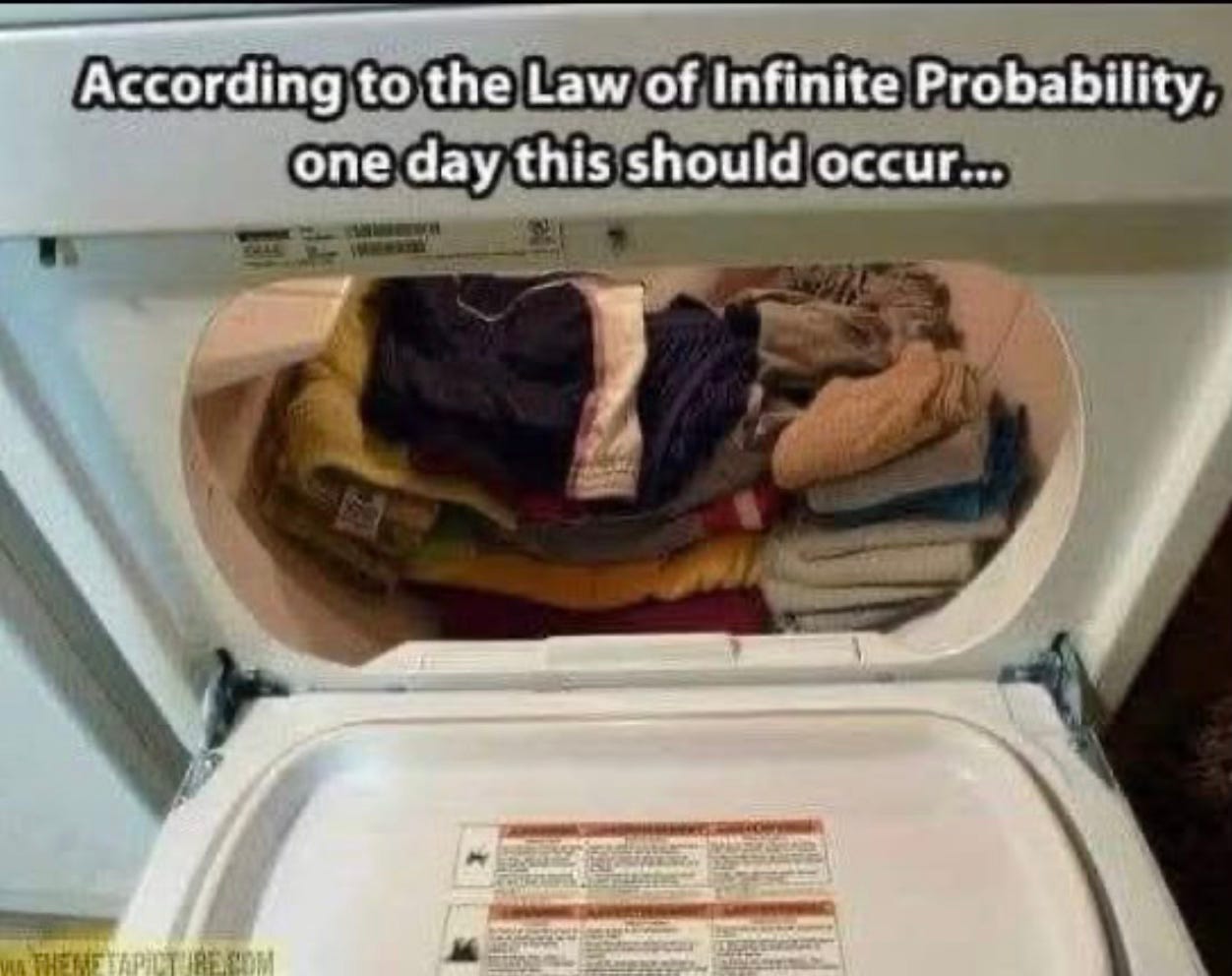Friday Morning Briefing
Trade, good biographies, making showers great again, and your weekend meme supply.
• So are tariffs back ON today, or OFF? I can’t keep up.
• My pal Henry Olsen thinks tariffs are here to stay, because Trump holds the high cards:
If he’s committed to using some level of tariffs to remake the global trading system — and he seems to be — he’s going to get his way. . .
The fact is that the era of globalization is over. That doesn’t mean global trade will fade away, but it does mean that government policies that favor return on investment and cheap goods over national security and the real wages of Americans without four-year degrees are going away. . . The globalization ideal led to massive global wealth and social dislocation in the wealthy world, as well as to China’s threatening rise. Trump was elected to stop these unintentional consequences from destroying the American way of life. He sees tariffs as an essential part of fulfilling that mandate. Expect him to use every weapon at his disposal to get his way.
Okay, I’m down with this analysis, but I’m not convinced it is going to work. Trump may succeed with our trading partners (and China to some extent), but can he conquer the bond market? Right now it seems his most potent foe.
• Over at the Civitas site, my article on “The Art of Political Biography” is up. It’s a long piece (about 3,500 words), but here are a couple of samples fro the opening:
I typically shock people with my categorical statement that most biographies aren’t very good and, to the contrary, are often quite bad, including many celebrated and best-selling biographies. This doesn’t mean that many leading biographies aren’t good reading or that readers won’t learn anything interesting about a subject, but the average biography falls far short of reaching serious insights into the figure in the spotlight. . .
Once upon a time, studying biography was considered the principal means for anyone wishing to acquire wisdom about political life. Biography was a primary school for statesmen, in other words. This is why Plutarch’s Lives was a core text for higher education. The transformation of the study of politics into another quantitative social science has degraded both our appreciation and production of good biographies. Thus, they remain an undervalued source of political wisdom today.
• Guess what: those low-flow shower heads that the government imposed on us to “conserve water” actually lead to higher water use. Conservatives could have predicted this, and probably did. This finding was reported recently in, of all unlikely places, the Washington Post:
Intrepid researchers at the University of Surrey had placed sensors in 290 showers around campus, recording data for 39 weeks from 86,421 individual shower sessions. “Water consumption,” the study found, sensationally, “was reduced by up to 56% with high water pressure.”
The researchers, seeming puzzled by the results, recommended more study. But they also offered a theory along these lines: When a showerhead delivers a good, fizzing spray, people pop in and briskly get their business done, unlike when faced with a drizzle that prompts them to wonder if the Head & Shoulders will ever be adequately washed off their head and shoulders.
Make showers great again! More winning, just yesterday:
• Factoid of the day: Data mining will mean more mining. Nature magazine reports this week that by the year 2030 AI data centers will consume 945 terawatt-hours of electricity. How much is that? Equal to a year’s worth of electricity consumed by Japan. Maybe more:
Alex de Vries, a researcher at VU Amsterdam and the founder of Digiconomist, who was not involved with the report, thinks this is an underestimate. The report “is a bit vague when it comes to AI specifically,” he says.
• And now for some memes to help get your weekend started right.
The new tariff formula:
Finally, if you have two minutes, this is fun:
Oh, wait—it gets even weirder:
















Steve,
Steady as she goes, you are in Trump land now and he is negotiating the biggest real estate deal in history under Trump Rules (chaos). Donald J. Trump is the Napoleon of negotiations — he lies, he cheats, he changes positions, he threatens, he maneuvers, he fakes, he name calls, he dismisses, he praises, he reverses direction, he dishonors promises, … he is total chaos, with a capital K.
The two rules of interpreting President Donald J. Trump:
1. ”Don’t take Trump literally, take him seriously.” — Selena Zito
2. “Don’t look at what Trump does, look at his goal.” — James Madison
Eye on the tiger (target).
Finally, if you have two minutes, this is fun:
Thumbs Up!
Remember, Nothing Beats Fun For Having A Good Time!